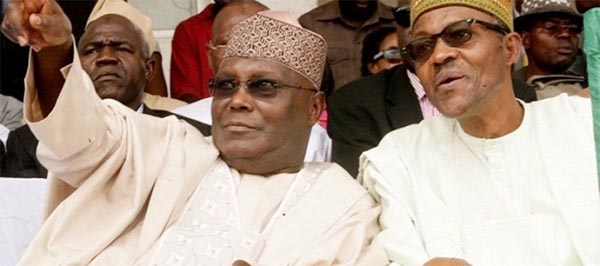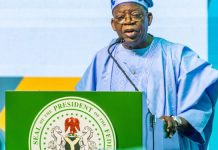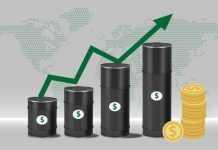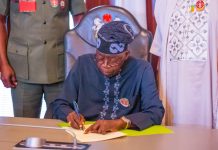- 41 items will not benefit from currency swap, CBN insists
- I & E window records $13bn transactions in one week
In a move set to project the reforms to be initiated under his government, former Vice-President Atiku Abubakar has said that he will privatise parts of the Nigerian National Petroleum Corporation (NNPC) and allow the naira currency to float to attract foreign investment, if he is elected president in the 2019 elections.
The reform-minded Atiku, in an interview with Reuters, also confirmed that he intends to run in next year’s presidential election, possibly becoming the biggest opposition heavyweight to say he will take on President Muhammadu Buhari.
The winner of next February’s poll will lead Africa’s top oil producer and most populous nation, which is central to regional stability as it battles Islamist militants in the North-east.
Abubakar, a former key ally of Buhari, whose resources helped propel him to power, quit the ruling All Progressives Congress (APC) in November and re-joined the opposition Peoples Democratic Party (PDP) a month later.
He has long enjoyed the support of the business elite in Nigeria’s commercial capital Lagos for his conservative-capitalist ideals and, as vice-president in a PDP administration from 1999-2007, he implemented a programme of liberalisation in areas including the telecoms sector.
As vice-president, Atiku was also the chairman of the National Council of Privatisation (NCP), which oversaw the sale of several state-run enterprises to the private sector and initiated reforms in the telecommunications, pensions, ports and power sectors between 1999 and 2007.
Atiku said he would go further if elected president.
“I am also going to expand it to include the oil and gas sector which has not been touched at all and other major sectors of the economy like mining, solid minerals,” he said.
Atiku said he would privatise parts of NNPC, which has been beset by decades of mismanagement and is crucial to Nigeria’s economic fortunes.
He did not specify the parts that would be privatised.
“I am a strong believer in very, very small government and also the private sector,” he said.
A drop in crude oil prices from late 2014 pushed Nigeria into its first recession in 25 years in 2016, spawning chronic dollar shortages because oil receipts make up two-thirds of government revenue and most of the country’s foreign exchange earnings.
The economy moved out of recession last year but growth remains weak and multiple exchange rates remain in place, imposed by the Central Bank of Nigeria (CBN) to support Buhari’s insistence that the naira should not be allowed to float.
“I will allow the naira to float because I believe that is one of the ways foreign direct investment can be encouraged to come in,” said Atiku, who hopes to replicate Buhari’s 2015 feat of winning a presidential election at the fourth attempt.
Buhari took office in 2015, and whoever becomes president next year will face challenges ranging from weak economic growth to communal violence between semi-nomadic herdsmen and farmers, as well as the Boko Haram insurgency.
Abubakar – who, like Buhari, is a Muslim from the North – said voters would welcome someone who could revive their fortunes, adding that of his four previous presidential campaigns he was only once rejected by the electorate. He was not selected as a party candidate on three other occasions.
Parties must select their candidate by October 7. The next president should be a Northerner, based on an unofficial power-sharing agreement under which the presidency alternates between the North and South after every two four-year terms.
However, Bismarck Rewane, chief executive of Lagos-based consultancy Financial Derivatives, said the former vice-president’s familiarity and age could be a disadvantage.
“To upset the Buhari candidature, you need something different: someone young, energetic and charismatic. You need something distinct from the current leadership,” he said.
“Atiku lacks Buhari’s popularity in Northern states and at 71, just four years younger than the president, would struggle to generate inter-generational appeal,” Rewane said.
The UN estimates that the median age in Nigeria is 18.
No Currency Swap for 41 Items
Atiku’s pronnouncement on his reform measures came just as the CBN yesterday explained that none of the items it has restricted from accessing foreign exchange (forex) from the interbank market will benefit from the $2.5 billion bilateral currency swap agreement it signed recently with the People’s Bank of China (PBoC).
The clarification became necessary, said the CBN, following speculation that the bilateral agreement would unlock access to forex for the restricted 41 items.
But speaking in a chat with THISDAY yesterday, CBN spokesman, Mr. Isaac Okorafor, stressed that importers of the restricted items were expected to source their forex from autonomous market sources.
He insisted that the currency swap bilateral deal does not cover the 41 restricted items.
The CBN had in July 2015, restricted 41 items, including vegetable oil, poultry products, toothpicks, cosmetics, plastic and rubber products, among others, from accessing foreign exchange from the interbank forex market.
Okorafor also explained that the currency swap would enhance the federal government’s import-substitution policy, boost the activities of small and medium scale enterprises, and enhance job creation.
“None of the items on the list will be funded under this currency swap agreement with China. And I can tell you that the currency swap will address SME forex constraints, enhance supply of raw materials, intermediate goods, and machinery
“The restriction of the 41 items policy will ensure that the currency swap will not lead to dumping. It will ease third currency pressure in the country.
“In addition, the currency swap will make trade with China convenient and fast, complement the SME forex window because the CBN’s funding of SMEs and creation of the SME forex window and currency swap are all part of the central bank’s strategy to grow the economy,” he added.
Meanwhile, forex flows in the Investors’ and Exporters’ (I & E) window of the CBN rose significantly by 63.3 per cent in just one week, to $1.3 billion last week, said a report by Afrinvest Securities.
Total trade value for the week of May 7-11 was a marked improvement over the $782 million recorded in the preceding week, reflecting increasing confidence in the country’s financial markets and the decision by the U.S. Federal Reserve last week not to raise rates.
The value of foreign investor holdings of Nigeria’s local debt instruments rose significantly to $16 billion at end of March, up from the $4 billion, the International Monetary Fund’s mission chief to Nigeria, Mr. Amine Mati, disclosed last week.
In addition, he said Nigeria’s equities market has seen increased interest by foreign investors.
“The number of investors that keep coming to my office (to make enquiries about investing in Nigeria) keeps rising,” he added.














